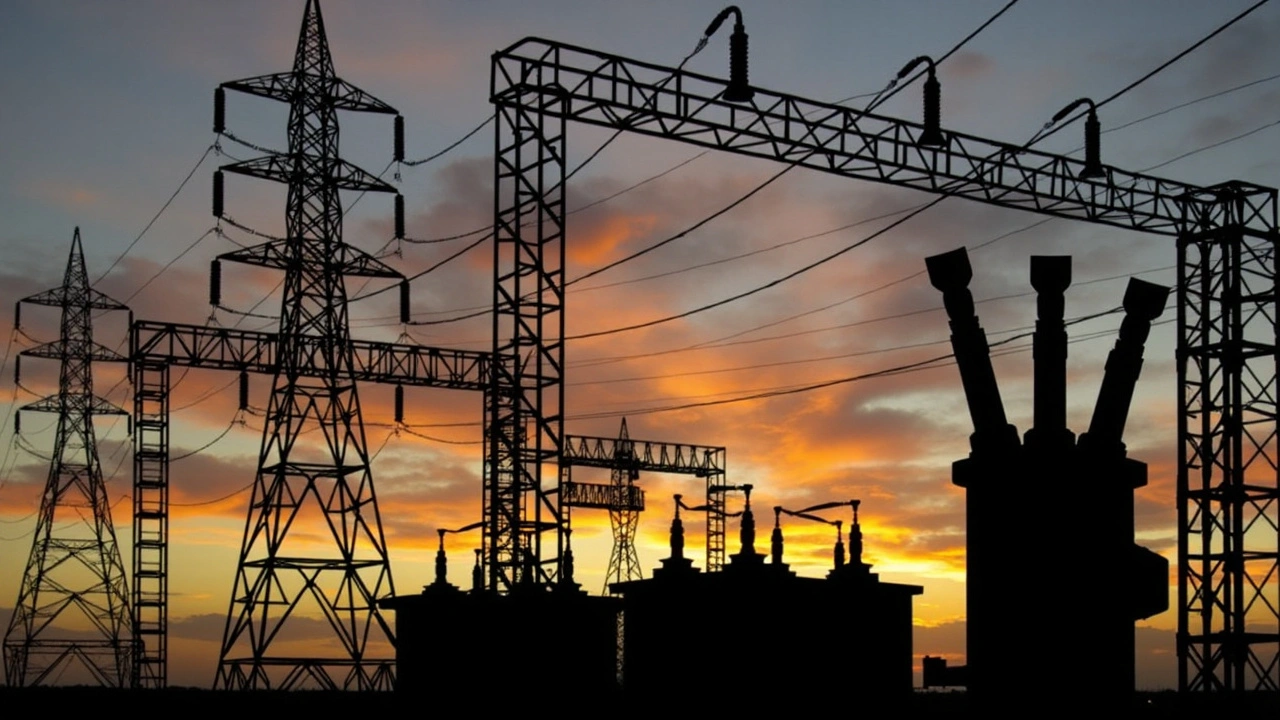Nigeria power sector: what’s really going on and what it means for you
Nigeria's power sector is messy but changing fast. If you've lived through daily blackouts, you know the pain: lights out, business stalled, food spoiled. Behind that inconvenience are predictable problems — old transmission lines, weak gas supply, unpaid bills and a patchy grid — and some real fixes starting to roll out.
Who runs the system and why it still feels broken
Privatisation was supposed to help. Since the 2013 handover of generation and distribution companies to private owners, some progress happened: more private investment, new independent power plants and faster metering programs. But the grid still struggles. The Transmission Company of Nigeria (TCN) handles the backbone, while the Nigerian Electricity Regulatory Commission (NERC) sets rules. Distribution companies (DISCOs) manage your local supply, and independent power producers (IPPs) sell power into the market. Knowing who does what helps when you need to complain, check outages, or follow policy updates.
What’s changing now? Two big trends matter. First, renewables and mini‑grids are growing fast. Solar panels and battery systems are becoming cheaper and popular for homes and businesses. Rural electrification projects often use mini‑grids to reach communities the main grid ignores. Second, investments in gas‑to‑power projects aim to fix the fuel problem that limits generation. Investors are also looking at storage and smart metering to make the system more reliable.
What you can do today — quick, practical steps
So, what can you do today? For households: start with a home energy check. Replace old bulbs with LEDs, unplug idle devices, and get a prepaid or smart meter if your DISCO offers one. Consider a small rooftop solar system with battery backup — even a basic setup can keep lights on during short outages and cut bills. For small businesses: a hybrid solution (solar plus a reliable generator or battery) reduces downtime and protects equipment. Track your energy use monthly to spot waste and justify an investment in efficiency.
Where should readers follow updates? Watch NERC for regulations, check TCN outage notices, and follow REA (Rural Electrification Agency) for off‑grid projects. Local DISCO social feeds often post real‑time outage news. For deeper analysis, look for reports from multilateral lenders and energy consultancies that publish project pipelines and financing trends.
For investors and entrepreneurs, the opportunity is clear: pay attention to metering, retail collection, gas infrastructure and off‑grid solutions. Projects with clear revenue models and local partners move faster. Expect growth in pay‑as‑you‑go solar, battery storage, and commercial PPAs for large users.
The sector still has hurdles — regulatory uncertainty, weak collections, and vandalism — but practical steps by consumers, smarter investments and better coordination between TCN, DISCOs and regulators can make power more reliable. If you care about steady electricity, start small: audit your usage, talk to your DISCO, and consider solar options. Real change will take time, but you can lower your risk and bills now.
Ask your DISCO for a complaint number, keep receipts, and use social media to demand faster fixes. Join local energy co‑ops to share mini‑grid costs. Community pressure moves quicker than waiting for officials to act, and report outages to TCN and NERC online.

Unprecedented Sixth National Grid Collapse Plagues Nigeria in 2024
Keabetswe Monyake Oct 15 19Nigeria faces another nationwide blackout as the national grid collapses for the sixth time in 2024, highlighting ongoing infrastructural issues and operational inefficiencies in the power sector. This disruption significantly impacts daily life and economic activities, emphasizing the urgent need for reforms. It also raises questions about the government's ability to stabilize power supply and secure vital investments.
More Detail